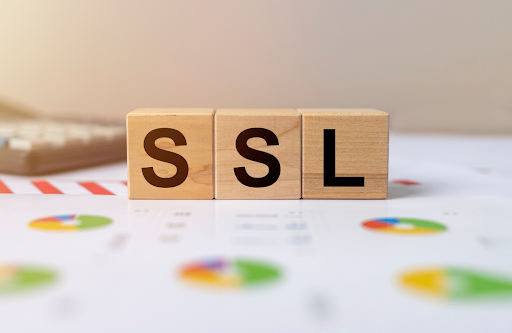Size doesn’t matter when it comes to cyber attacks. Big or small, thousands of websites are hacked every day. Don’t let online hackers destroy what you’ve created. Your website could be the next target for an online attack. Prevent online attacks and hacking schemes from hijacking your hard work and give your site visitors a healthy dose of trust right from the start. Learn how SSL certificates and PKI management better keep your website locked down and secure.
SSL Certificates
One of the easiest, yet most effective, methods of upping your web security against data stealing involves using SSL certificates, or secure socket layer certificates. An SSL certificate encrypts data moving between the host, such as the web server or the firewall, and the web browser. Any information sent over these points can no longer be nabbed by a third party.
Without an SSL certificate, someone filling in a form could intercept the information in what’s termed a “man-in-the-middle attack.” If that form contained financial details, it could mean big trouble for your business.
What Does an SSL Certificate Look Like?
You may have noticed some websites beginning with “https,” rather than “http.” Those websites with “https” use an SSL certificate, enabling web users to verify a website’s identity, boosting trust and legitimacy. If your website accepts any form of payment, a valid SSL certificate isn’t nice to have, it’s mandatory—or you risk leaking your customer’s private data.
Once you buy an SSL certificate, the security certificate is installed and activated on your website’s server, enabling the website to load over “https” and provide data encryption to its users. Clicking on the padlock next to your website displays more info, such as the issuing authority or SSL certificate authority (CA), and the public key. But, that certificate must remain updated. There’s another piece to creating more robust security certificates: PKI management or public key management.
PKI Management
Keeping data safe is a tough job. How effective is your key change? How are your keys managed? Unencrypted or oddly handled keys lack authority — and the same logic holds true for private PKI. The right infrastructure is crucial to prevent issues like “this website is unsafe” warning screens. That’s not the first impression any business wants to make — and it results in lost revenue, fast.
SSL certificates are similar to public key infrastructure, yet also different. PKI refers to the public key infrastructure in total sum. For example, web servers take advantage of SSL, which happens to use PKI. It can get confusing. Good thing you can take control of your keys with one simple approach.
Look for an enterprise key management software solution to combine multiple encryption key management portals from one super simple platform. For example, Sectigo Certificate Manager is a single certificate lifecycle management platform that has the functionality to integrate with cloud providers’ key vaults to provide the wide variety of certificate types required and automatically renew or modify those certificates, so the applications never cease to operate.
SSL Certificates and PKI Manager Add Web Security
Don’t downplay the importance of your website’s security. Almost a trillion dollars were lost in 2020 due to cyber crimes, according to data reported on by the Washington Post. You can’t afford not to protect your business.
For the ultimate hands-off approach, automate the lifecycle management for enterprise SSL certificates. Look to an SSL certificate manager to provide a secure solution for each server across your environment.

